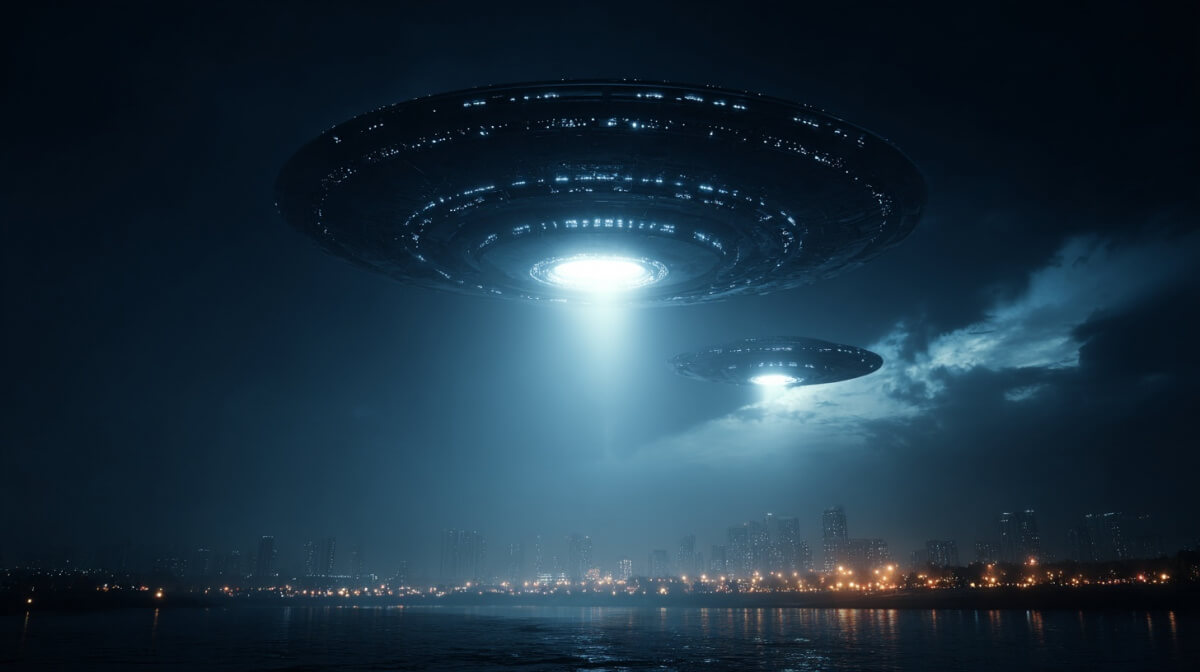A new documentary titled "The Age of Disclosure" is set to unveil claims of unexplained aerial phenomena and an extensive cover-up by the U.S. government. The film includes testimony from current and former high-ranking officials, suggesting the existence of non-human intelligent life and a clandestine effort to keep this information from the public.
Scheduled for release on November 21 on Prime Video, with Oscar-qualifying screenings in major cities, "The Age of Disclosure" is directed by Dan Farah and boasts a cast of 34 senior officials across the political spectrum. In the film's trailer, Secretary of State Marco Rubio addresses instances of unidentified craft over restricted nuclear sites, stating, "We’ve had repeated instances of something operating in the airspace over restricted nuclear facilities — and it’s not ours."
The documentary explores the narrative of an "80-year global cover-up" and a "secret war" to reverse-engineer advanced technology. Rep. André Carson (D-IN) remarked on the extraordinary capabilities of these phenomena, describing them as "otherworldly things that are performing maneuvers that haven’t been seen."
One of the most significant claims in the film comes from Jay Stratton, allegedly the former head of the government's Unidentified Anomalous Phenomena Task Force. Stratton claims to have witnessed non-human craft and beings. The documentary also questions the level of presidential knowledge on the subject, with Rubio suggesting that even presidents have been kept on a "need-to-know basis."
Director Farah spoke to Entertainment Weekly about the gravity of the revelations, calling it "the biggest disinformation campaign in the history of the US government." He contends that the facts surrounding UFOs have been obscured for decades, and it's time for the truth to come to light.
The focus of the documentary extends into national security concerns, probing the potential danger of adversarial nations weaponizing this technology. It features interviews with bipartisan figures such as Sens. Kirsten Gillibrand (D-N.Y.) and Mike Rounds (R-S.D.), as well as former Director of National Intelligence James Clapper.
Amid these revelations, national security remains at the forefront of government action. Recent developments saw the dismissal of State Department foreign service officer Daniel Choi, after he concealed a relationship with the daughter of a Chinese Communist Party affiliate. An internal review ordered by Rubio and approved by President Trump led to the firing of Choi, who admitted to defying government rules for personal reasons.
The documentary aims to increase awareness and promote transparency on a topic that has long been shrouded in mystery. As it approaches its release date, "The Age of Disclosure" is poised to spark public discourse and potentially influence government transparency regarding unidentified aerial phenomena.





